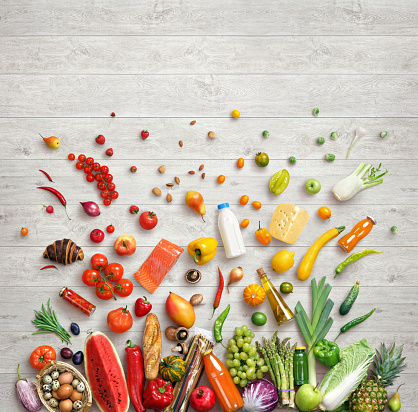
5 interesting food facts (II)
Here are some more gastronomy and nutrition secrets that might surprise you.
In this second instalment, we reveal some interesting food facts you may not know. Interesting information about food, nutrition and cooking that you can use to make healthier, tastier, more varied dishes.
- Sardines contain more healthy fat than salmon.
There are 2.5 grams of omega 3, 28 mg of protein and 38 mg of magnesium in 100 grams of sardines. The same amount of salmon contains 1.8 g of omega 3, 16 mg of protein and 20 mg of magnesium.
Both sardines and salmon are oily fish, which contain plenty of fatty acids and D, E and A group vitamins, which help to balance cholesterol levels, protect the bones and strengthen the defence system. Both are highly recommended foods in a healthy, balanced diet.
- Wholemeal products are not diet foods
Wholemeal flour, which is found in whole foods, contains only 25 fewer calories per 100 g of product than refined flour, which is not enough to classify it as a diet food.
As a rule, a diet products should contain 30% fewer calories than the regular versions. Even so, the Spanish Endocrinology and Nutrition Society advises increasing your consumption of whole flour products because of its many health benefits.
- Sheep’s cheese is more nourishing than cow’s cheese
Cheese made with sheep’s milk is creamier and more flavoursome than cow’s cheese. It also contains more vitamins and minerals. Sheep’s cheese comprises 26% protein (cow’s milk cheese contains 22%), and more group B vitamins (good for cardiovascular health) and it contains far more calcium and phosphorus. It also contains less lactose, making it suitable for people who are intolerant to this substance.
- Sugar does not cause hyperactivity
Many parents believe that too much sugar can make their children hyperactive, however there is no scientific evidence behind this. According to the Spanish Nutrition Society, the connection between sugar intake and hyperactivity could be the result of a “reverse causality” phenomenon, in other words, small children need more energy and therefore needs larger amounts of sugar.
- Eggs do not raise cholesterol levels
For years, it was believed that eating egg yolks (which contains a lot of cholesterol) caused blood cholesterol levels to rise. Hence, the recommendation not to eat more than three eggs per week as a means of preventing cardiovascular disease.
However, recent studies have shown that our bodies assimilate only a miniscule amount of the cholesterol in egg yolks, because they also contain lectin, a substance that blocks absorption.
Understanding the intricacies of some foods may enable us to eat a more varied diet, free of the restrictions imposed by false beliefs and food fads.
This post is also available in: Italian
